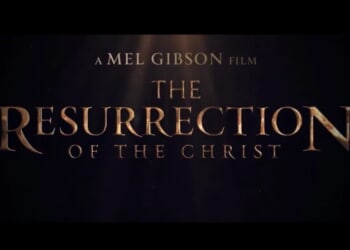Earlier this year, Professor Steve Taylor (former chair of the Mass Spectrometry Research Group at the University of Liverpool’s Department of Electrical Engineering & Electronics) appeared on ITV News to announce the discovery of sequenced soft tissue in dinosaur bones. This evidence challenges the geological timescales of millions of years. Here in ET, he explains the implications for Christians and the biblical timeframe.
As the Lord Jesus Christ rode into Jerusalem from the Mount of Olives on Palm Sunday, the Gospel writers record that a great crowd of his disciples began to rejoice and loudly praise God. Some of the Pharisees asked Jesus to rebuke his disciples and to ‘hush them up’. To this Jesus responded with the words: ‘If these should keep silent, the stones would immediately cry out’ (Luke 19:40). In this article we will consider startling evidence found in earth’s rock layers confirming the truth of Scripture and going against the prevailing long age secular worldview.
Deep time
The discovery of soft tissue in dinosaur bones has challenged some long-held scientific views. In 1788, Scottish naturalist James Hutton speaking of earth’s geological processes wrote, ‘…we find no vestige of a beginning and no prospect of an end’. Hutton thereby introduced the concept of ‘geological time’ or ‘deep time’. Although contested by other geologists at the time, Hutton’s ideas eventually became mainstream and today he is known as ‘the father of modern geology’. In schools and universities worldwide, the belief that the world is millions or billions of years old is uncritically taught, and there are many in the church who have also accepted this as a fact beyond dispute.

Biblical time
The Bible, however, makes no mention of millions of years of earth’s history. ‘Deep time’ is nowhere mentioned in Scripture. The opposite is in fact true: a straightforward reading of the Bible taken at face value would lead an unbiased reader to conclude that the world is only several thousand years old. This was the almost universal understanding of the church from the earliest times, throughout the Reformation, and until the 19th century. A question therefore arises about biblical inerrancy: is the timeline taught in the Bible correct or does it need to be re-interpreted in line with geological time? To put the question more bluntly, is the Bible reliable when it comes to the age of the earth? Furthermore, if the Bible cannot be trusted when it comes to its timeline, how do we know it can be trusted when it speaks of the more important issues of heaven and hell and sin, righteousness, and judgment? As one man said: ‘If I can’t be sure of the Bible on page one, how can I be sure of the rest?’















